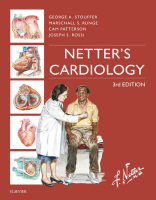Physical Address
304 North Cardinal St.
Dorchester Center, MA 02124

Percutaneous coronary intervention (PCI) has undergone a dramatic transformation since its introduction in the 1970s. In the early 1990s, coronary stenting revolutionized PCI, improving procedural results and dramatically reducing the need for emergency coronary artery bypass graft surgery (CABG). The…

The diagnosis of acute coronary syndrome (ACS) is based on findings ranging from clinical presentation on ECG and/or biochemical findings to pathological characteristics. Patients with ACS include those whose clinical presentations cover the following range of diagnoses: unstable angina, non–ST-elevation…

Definition and Epidemiology Acute coronary syndrome (ACS) is a term used to describe a group of clinical syndromes included with acute myocardial ischemia. Unstable angina (UA), non–ST-segment elevation myocardial infarction (NSTEMI), and STEMI are included in this group of syndromes.…

Advances in pharmacotherapy and revascularization strategies have dramatically improved the short-term and long-term outcomes for patients with atherosclerotic coronary artery disease (CAD). At the same time, the worldwide incidence of atherosclerosis and CAD has also increased, largely driven by significant…

Cardiovascular disease risk factors—including hypertension, lipid abnormalities, diabetes mellitus, obesity, physical inactivity, and tobacco use—provide targets for the prevention or progression of heart disease. Yet, these risk factors account for only approximately 50% to 75% of cases of ischemic heart…

Etiology and Pathogenesis Diabetes mellitus is the resultant state of insulin deficiency that causes elevated blood glucose. The etiologies of this insulin deficiency can broadly be classified as either type 1 or type 2 diabetes. Type 1 diabetes is characterized…

The management of lipid disorders in reducing the risk of coronary heart disease (CHD) has evolved in the past few years. There are a number of factors that account for these changes—the introduction of the 2013 American Heart Association/American College…

Hypertension, or high blood pressure (BP), is a major risk factor for atherosclerotic cardiovascular disease ( Box 15.1 ). Despite advances in the understanding of the pathophysiology, epidemiology, and natural history of hypertension, as well as improvements in therapy, many…

Revascularization via coronary artery bypass surgery and percutaneous coronary intervention (PCI) remains the definitive therapy for patients with refractory ischemic heart disease, particularly when accompanied by left ventricular (LV) dysfunction. In particular, bypass surgery reduces mortality in patients with multivessel…

Right and left heart catheterization is the introduction of a catheter into the right heart and left heart chambers, respectively. Right and left heart catheterization provide key hemodynamic data that can be used to diagnose various cardiac disorders. Left heart…